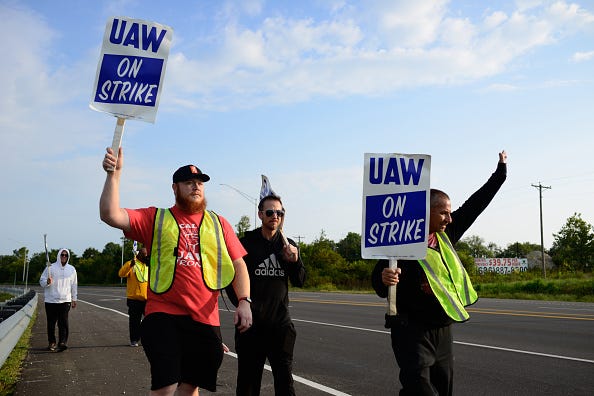
Buffalo, N.Y. (WBEN) - It's an unusual position for thousands of local auto workers. The United Auto Workers has called a strike against the Big 3 U.S. automakers, but only targeted plants in Michigan, Ohio and Missouri are on strike.
General Motors and Ford employ about 4,300 auto workers in Western New York and local plants are open for now.
"You very well may see people on the picket line at your plants," said Automotive reporter Jeff Gilbert with WWJ Radio in Detroit, who appeared on WBEN on Monday.
Gilbert has been following the strike closely. He said the first phase was to take down three similar plants at each of the Big 3 car makers. Some SUV's and pickup trucks are not being made, but it's not affecting the most popular models.
"The union has said that if they don't like the way negotiations are going, they will call more plants out on strike. In New York, there are some strategic plants. Whether they go out next, or down the road, or not at all, is hard to tell, because the union wants to keep everyone guessing," he said.
How long does this strike have to go, before there are major problems with shortages in the auto industry?
"I don't think it would take that long and remember, this is not a strike against the auto industry. It's a strike against domestic car makers. The intention is for dealers to run out of product, while their competitors such as Toyota, Hyundai, Volkswagen and others, would be in good shape with inventory. Not only would it hurt these car makers, but it would essentially help their competitors," added Gilbert.
If just one of the automakers caves to union demands, does it mean all three will?
"That is what the union is hoping for," added Gilbert. "In the past, they've done what is called 'pattern bargaining.' That's where they put two car makers aside, and try to hone in on a deal with one and pattern it for the other two.
If one car maker caves, then they essentially have their pattern and they will try to keep pressuring the other two until they get that pattern. There will be competitive pressure on those companies if one settles, and two others are on strike."
Is one of the Big 3 more likely to cave than the others?
"I wouldn't use the word 'cave,' but I would say Ford is the most likely of the three to respond to pressure just because they have more workers in the U.S. and more pressure could be put upon them."
